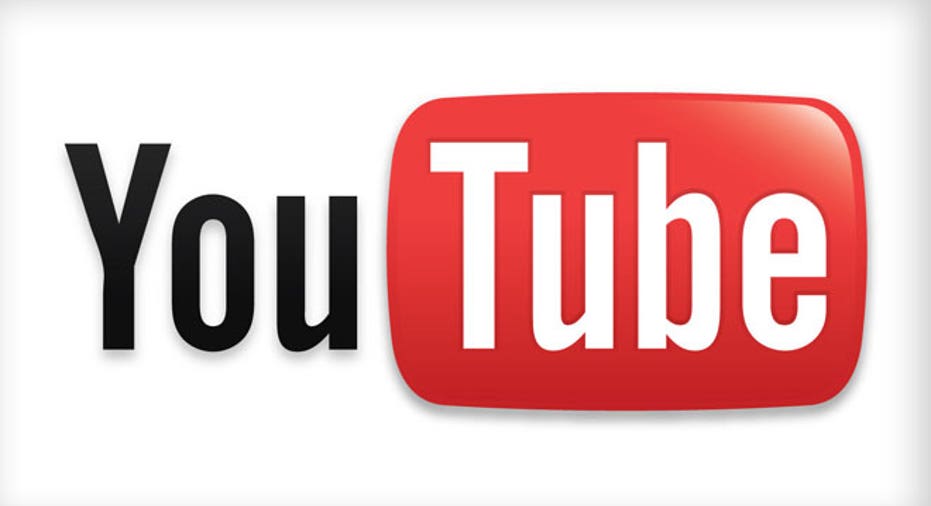YouTube Eyes TV, Movie Rights

YouTube is seeking streaming rights to TV series and movies to bolster its new subscription service, intensifying its rivalry with Netflix, Amazon.com and Hulu in the competitive market for online video.
Executives of YouTube, the Alphabet unit that is the world's largest online-video service by viewers, have met with Hollywood studios and other production companies in recent months to consider pitches and negotiate licenses for new content, according to people familiar with the situation.
Susanne Daniels, the former programming chief of MTV who joined YouTube in the summer, and Kelly Merryman, a former Netflix content executive who joined YouTube in late 2014, are involved, one of the people said. They report to Robert Kyncl, another Netflix veteran who is now YouTube's chief business officer.
It isn't clear what TV series or movies YouTube is pursuing. However, YouTube is eager to secure premium videos because it recently launched a $9.99-a-month subscription service called Red, which offers ad-free videos and streaming music, the people familiar with the situation said.
The efforts appear to be at early stages. Executives at one major Hollywood studio said they haven't talked to YouTube about licensing content.
YouTube has been free for viewers and supported by ads since 2007, so it must offer more to persuade people to pay.
One way is to create content, as Netflix, Amazon and Hulu have done with some success. YouTube announced a similar effort in October and plans to release at least 10 of its own movies and series, starring YouTube stars like Felix Kjellberg, known as "PewDiePie," starting in 2016. These will only be available to Red subscribers.
A second strategy is to license movies and TV shows made by others; that is what YouTube is pursuing now. Netflix, Amazon and Hulu license many older movies and TV series that have already run elsewhere, while YouTube is focusing on new material, according to one of the people.
The shows or movies may be streamed exclusively on YouTube Red, or could be released through traditional channels like movie theaters, cable networks and DVDs alongside the YouTube subscription service, the person added. YouTube is still deciding how much content to license, but it is eager to have a robust collection of original programming and licensed programming in 2016 and beyond, the person added.
"YouTube is dominant in ad-supported online video, but they have missed the subscription side," said Mark Terbeek, a partner at Greycroft Partners, a venture-capital firm focused on media and technology. "To get people to pay they will have to have higher-end content."
Global revenue from online TV and video services will reach $51.1 billion in 2020, up from and $26 billion this year, according to estimates from Digital TV Research Ltd. Revenue from subscription-based streaming-video services will surpass revenue from ad-supported services by 2020, the research firm said.
Netflix, Amazon and Hulu have been snapping up streaming rights for years, giving them a big head start on YouTube. Some of those deals are exclusive, such as an expanded pact Hulu signed recently with Viacom for exclusive streaming video-on-demand rights to Comedy Central shows like "Inside Amy Schumer."
Hulu is expected to double spending on content this year to $1.5 billion, putting it roughly on par with Amazon, though still behind Netflix, which is expected to boost content spending nearly 18% to $3.3 billion, according to RBC Capital Markets analyst David Bank.
YouTube's arrival may raise prices or add more pressure to create exclusive deals. "I see YouTube as a legitimate threat to Netflix and Amazon and Hulu," Greycroft's Mr. Terbeek said.
Others are jumping in. Comcast recently launched its "Watchable" online-streaming service, and Verizon Communications is working on a free, ad-supported streaming video service called Go90.
The three big players built their online services by leveraging traditional strengths: Netflix in DVD subscriptions, Hulu--a joint venture of 21st Century Fox, Comcast 's NBCUniversal, and Walt Disney Co.--from its relationships with major media companies, and Amazon's Prime shopping subscription service, according to Jason Ahmad, CEO of Epoxy, which provides technology for online video creators. (21st Century Fox and Wall Street Journal owner News Corp were part of the same company until 2013.)
"YouTube's dominance in short-format video, its global reach and its technical prowess give it a seat," he added.
Alphabet licenses video through its Google Play store which offers downloads and online rentals of movies and TV shows. YouTube also offers one-time digital rentals. But until recently, YouTube hasn't sought rights to stream long-form videos through a subscription service.
YouTube is using Google Play's existing relationships with movie studios and other premium video content owners to negotiate streaming deals, one of the people familiar with the situation said. YouTube and Google Play deal makers work out of the same office in Beverly Hills, Calif., the person noted.



















